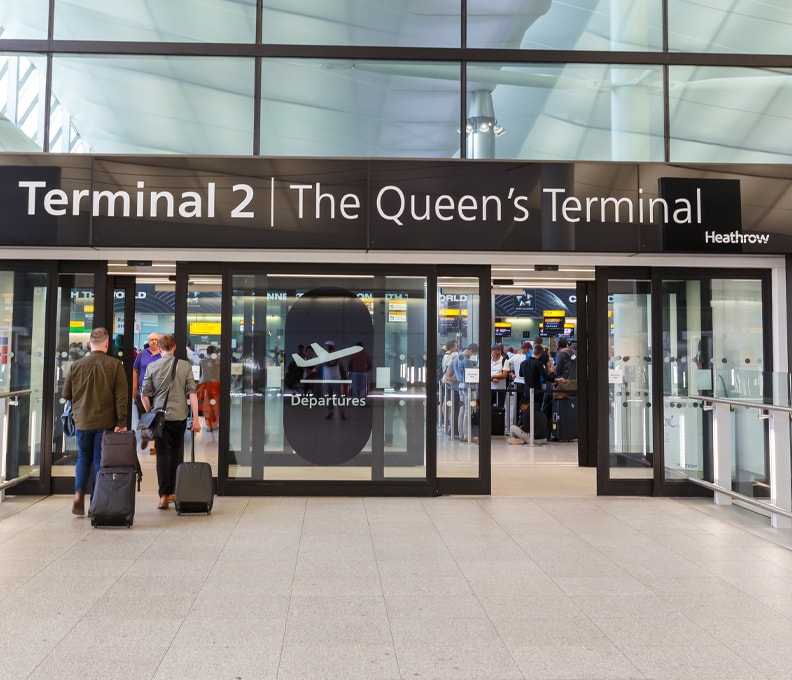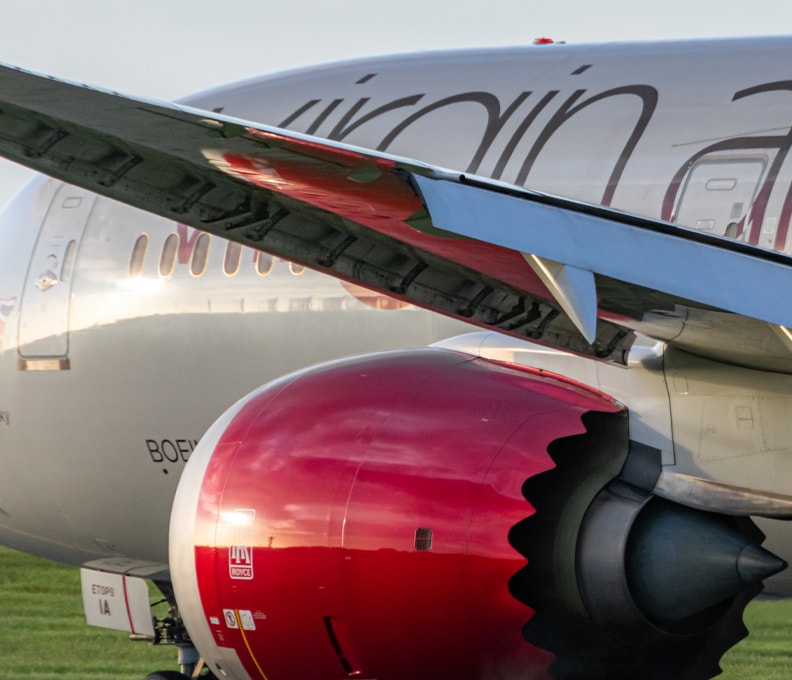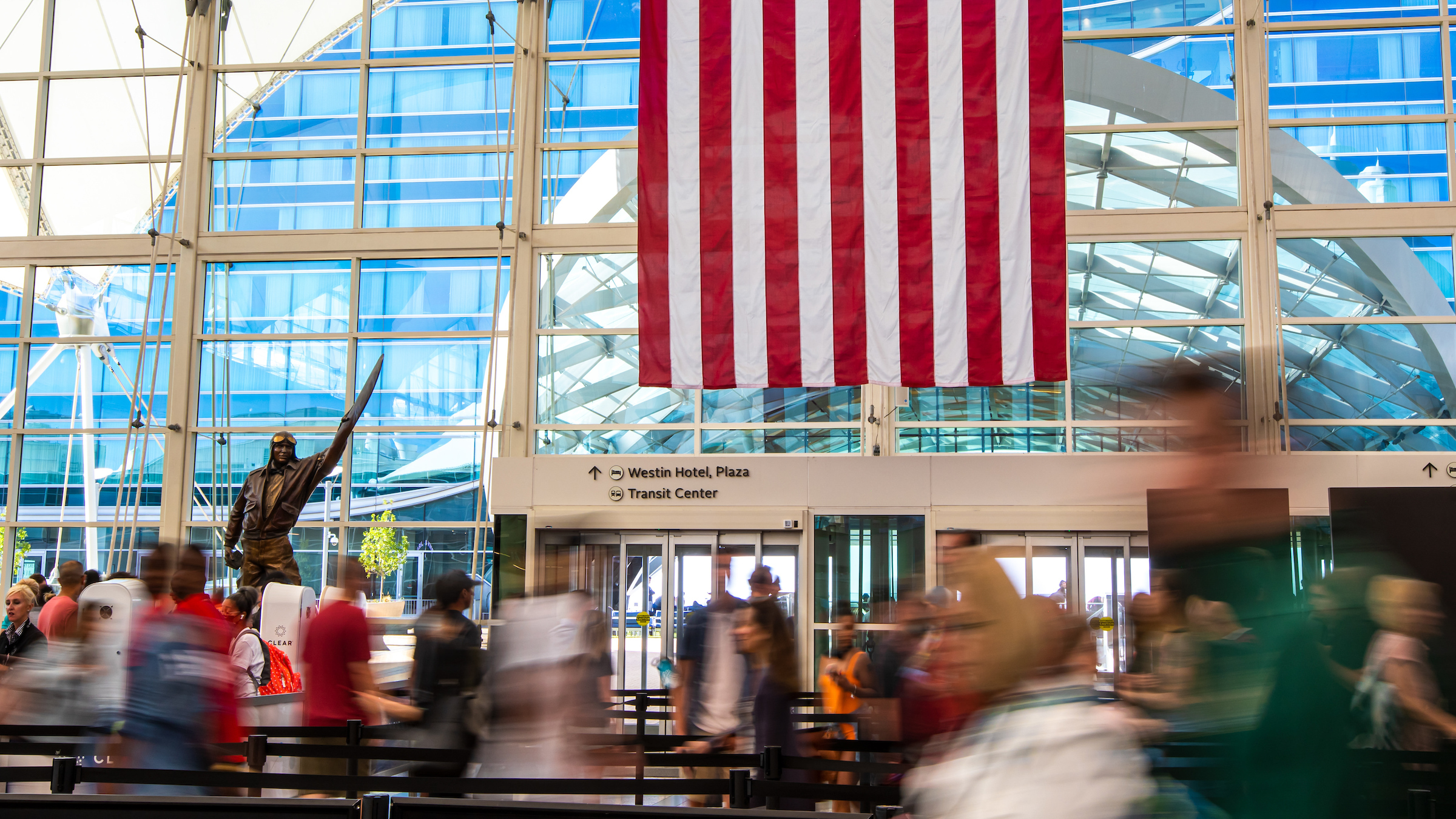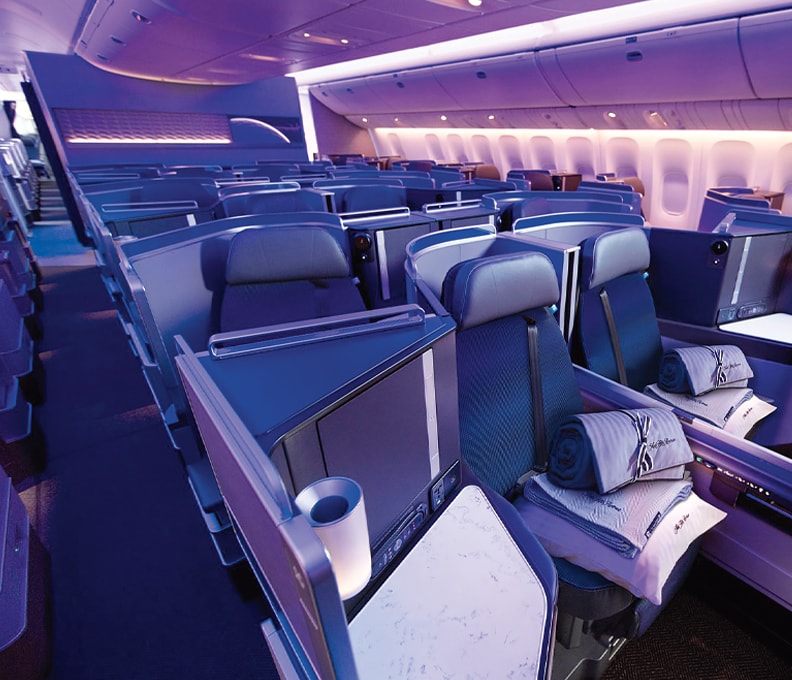Virgin Atlantic will operate the world’s first-ever net-zero transatlantic flight next year after the carrier won a competition to secure funding from the U.K. government.
In 2023, one of the airline’s Boeing 787-9 Dreamliners will make the journey across the Atlantic between London Heathrow (LHR) and New York (JFK), one of the most popular transatlantic routes for both leisure and business travelers alike. However, what will make the flight the first of its kind is the fact that the aircraft will be 100 percent powered by sustainable aviation fuel (SAF).

London Heathrow LHR Airport Terminal 2 in the United Kingdom / Photo: Markus Mainka/Adobe Stock
Compared to kerosene—the traditional fuel used for aircraft—SAF can reduce carbon emissions by more than 70 percent. The SAF used for this Virgin Atlantic flight is set to be made from used waste oils and fats, such as cooking oil. The airline will also purchase biochar credits—a material that takes carbon out of the atmosphere and stores it—to help make the flight net zero.
The introduction of SAF is expected to create an industry providing up to 5,200 jobs in the U.K. by 2035. With an estimated annual turnover of £2.4 billion ($2.93 billion) by 2040, this transatlantic flight operated by Virgin Atlantic is an essential milestone in the road towards net zero flights.
“For decades, flying from London to New York has symbolized aviation’s ability to connect people and drive international progress,” said Mark Harper, the U.K.’s Secretary of State for Transport. “It’s now going to be at the forefront of cutting carbon emissions from flying.”
“Not only will this flight pave the way for future generations, but it will demonstrate just how much we can achieve when we work together on a shared goal – bringing together some of the best businesses and academics in the world and led by a British airline,” said Harper.
The British consortium that secured the funding comprises Virgin Atlantic, Rolls-Royce, Boeing, Imperial College London, University of Sheffield, Rocky Mountain Institute (RMI), and ICF. The consortium hopes that the initial net zero flight in 2023 will demonstrate to the global aviation industry the feasibility of operating long-haul flights SAF.
“As an airline founded on and committed to innovation, we’re proud to lead a cross-industry of partners to make aviation history by operating the first ever 100 percent SAF flight across the Atlantic,” said Shai Weiss, Virgin Atlantic’s CEO.
“Virgin Atlantic’s inaugural flight in 1984 was to New York, and today it continues to be one of the most popular routes. It will be an honor to pave the way for this important business and leisure route to become even more sustainable.”
Weiss added that the research and results from this flight would be “a huge step in fast-tracking SAF use across the aviation industry and supporting the investment, collaboration, and urgency needed to produce SAF at scale.
Virgin Atlantic is on a long-term plan to achieve net zero emissions by 2050.






